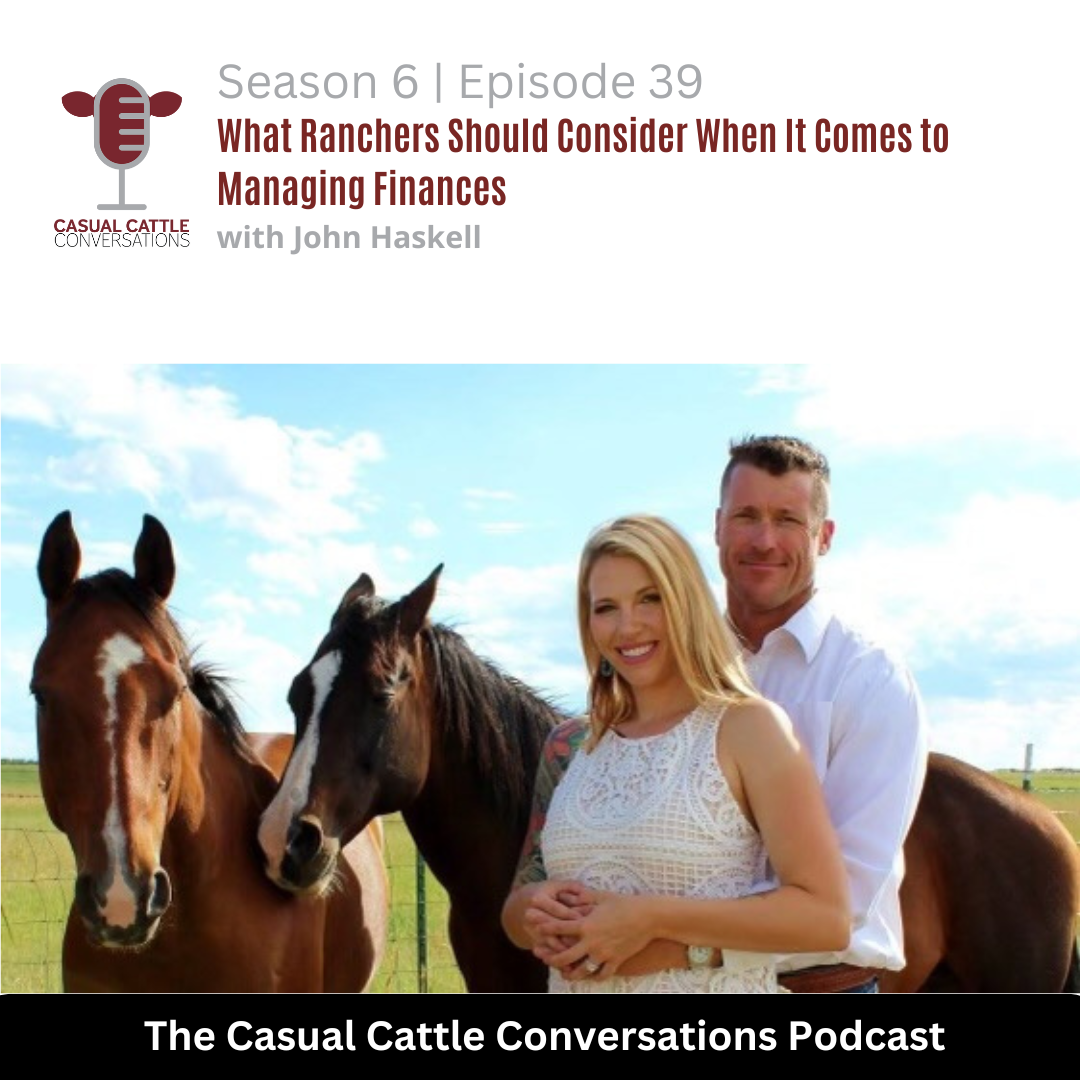What Ranchers Should Consider When It Comes to Managing Finances

Question of the Week: Are you avoiding the truth and why?
Odds are you didn’t start ranching because you liked the bookkeeping aspect of it. However, that doesn’t mean it can be avoided. After visiting with a few experts in the management accounting space in agriculture, the consensus is that most ranchers have no idea where they actually stand financially from both a management and accounting standpoint. Why is this?
Is it because they don’t have the team or time to dedicate to this portion of their operation or are they afraid to know the truth that the numbers reveal?
These numbers are simply a tool to help provide direction. Do you catch yourself avoiding them? If so, why?
What Ranchers Should Consider When It Comes to Managing Finances
Owning and operating a farm or ranch is a lifestyle and a business for many. The lifestyle can lead to early mornings and late nights, but the reward we see as agriculturists can’t be replaced. The business component can lead to a lot of record keeping, book work and financial components to manage. Which one do you prefer as a cattle producer, the lifestyle or the business side?
For those who don’t enjoy the record-keeping and financial side of ranching, it can feel overwhelming to keep track of everything and put the time into this area of the business. John Haskell with Ranch Right LLC shares the 3 biggest mistakes cattle producers make when it comes to management accounting and how to fix them during this podcast episode.
Haskell did not grow up on a ranch and didn’t anticipate this being his career. However, he had the opportunity to work for several profitable ranches and observe the systems they had in place. This sparked a fire that eventually led to the formation of Ranch Right LLC, a company dedicated to helping ranchers not only understand their finances but how to be proactive with the decisions they make based on their numbers. Haskell and his team are strictly focused on management accounting.
“Cattle producers should be keeping two sets of books. One book for taxes and one for management accounting. We often think of fraud when we hear of two sets of books being kept, but that’s not the case. There is a set of rules that governs tax accounting and a set of rules that governs management accounting. Essentially, the same numbers are just being used in different ways to understand where you stand on the tax side of things and the management side of things,” said Haskell.
So, what’s the biggest overarching mistake made by cattlemen and women when it comes to management accounting?
“I’d love to tell you that the biggest mistake people make is not sharing enough about their finances with their employees, but the single biggest mistake is that nobody knows what the financials are,” said Haskell.
Many people keep books that are tax-oriented and not management-oriented. This doesn’t allow you to ranch at the speed of commerce and make accurate decisions in real time because you are looking at past records. You need to have the bigger picture in front of you and know which enterprises are and are not working. This will allow you to better understand where to best put your time and other resources.
The second biggest mistake cattle producers make when it comes to management accounting is not allowing themselves to work in their strong areas and do what they are good at.
“Oftentimes we see bookkeeping fall into the lap of the wife or a mom. There are many individuals who do a fantastic job at this. However, there are also many who just got handed the job because they were closer to the house and office than anyone else,” said Haskell.
Hiring an expert to handle your record keeping if no one on your operation enjoys it or understands it not only keeps everyone a little happier, but it also ensures your books are providing the most accurate picture possible by getting the data structured properly.
How data is structured, is the third mistake Haskell covered. “When our team enters numbers, we categorize them very pragmatically so that you as a producer can ask yourself how your operation is being affected and if the ranch isn’t functioning properly, what do you need to change,” said Haskell.
Haskell and his team have found that many people are creating too many categories in their accounting software that don’t help them make informed decisions and just add more work.
Haskell also offers tips for those who want to clean up their finances and get on the right track after a few or many years of being overwhelmed and confused by numbers and how to record them.
“There is some value in cleaning up what you already have. I think, frankly, the best thing you can do is responsibly dynamite everything and start fresh,” said Haskell.
Obviously, you can’t run away from current debt and responsibilities. But you can take a fresh look at what you have and make a plan to move forward.
To wrap everything up, if you as a cattle producer want to get your financial records cleaned up there are three main things you need to do: get a team and structure in place, allow you and your team to work in your strong areas and use the numbers and information you have to be proactive on your operation. If you don’t enjoy accounting or it isn’t your area of expertise, you don’t have to put yourself in that box. You simply need to understand the basic principles of business and build a strong team.








